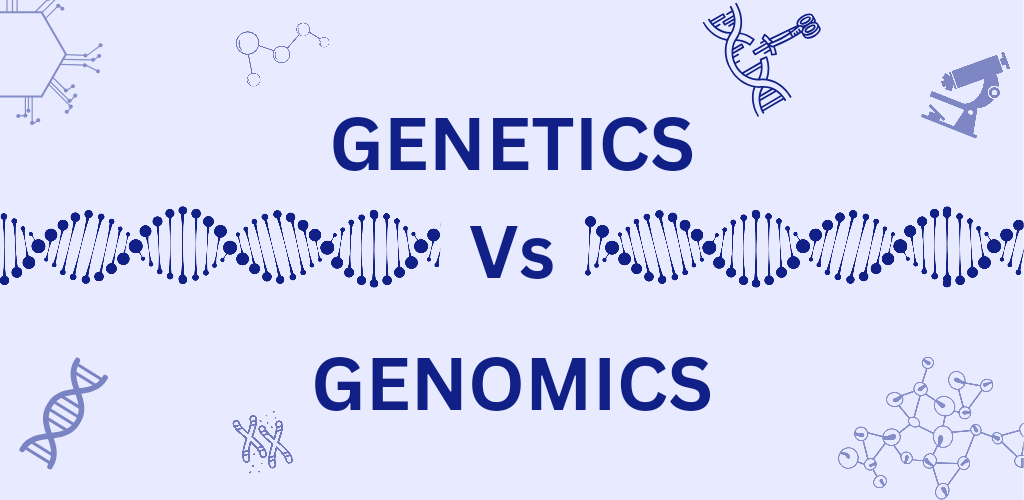Building a Strong Foundation: How Genetic Testing Supports Childhood Growth and Wellness
When we talk about giving children the best start in life, we often focus on nutrition, education, and vaccinations. But hidden within every child is a rich blueprint of genetic information that can tell us more than we might imagine. From growth potential to risk of metabolic disorders, this genetic map has the power to guide a more personalized path to health. Enter the new frontier: child growth DNA tests—a modern tool transforming how we think about wellness from the earliest years.
Cracking the Code of Early Development
Genetics doesn’t just influence what color eyes a child has—it shapes how their body processes nutrients, builds muscle, manages weight, and even responds to exercise. In fact, many traits tied to metabolism, body composition, and nutrient absorption are already coded in the child’s DNA. A pediatric wellness DNA test deciphers this code, helping caregivers and clinicians understand potential red flags early on, long before symptoms appear.
The point is not to predict the future with scary precision but to tailor a kids genetic health plan—one that supports healthy growth trajectories and targets risks before they manifest. That’s not science fiction anymore; it’s just smart planning.
Personalized Growth Begins with Precision
One of the major advantages of these tests is how they align with the broader trend in healthcare: personalization. Just as genomic testing in oncology has transformed cancer care by enabling treatment plans based on a tumor’s specific mutations (1, 3), wellness genetic testing for kids applies that same principle to everyday health. The concept is identical—identify genetic variants that may influence development, and intervene proactively.
For instance, if a child has a genetic tendency toward low vitamin D absorption, parents can optimize their supplementation and diet from the get-go. If markers indicate a higher likelihood of insulin resistance, lifestyle modifications can be introduced early to avoid long-term metabolic disorders. This is precision pediatrics, and it’s catching up fast.
Not Just Testing—Planning
What separates high-value testing from a simple genetic snapshot is the depth of interpretation. A robust child growth DNA test goes beyond “yes/no” genetic flags. It connects dots: it maps how certain variants influence traits like BMI, appetite control, fat storage, or muscle response. When this information is combined with family history and environmental inputs, it becomes a cornerstone of a fully customized kids genetic health plan.
Think of it this way—if you had a manual for how your child’s body responds to nutrition, wouldn’t you use it to plan meals, activity, and even school schedules better?
From Oncology to Pediatrics: Lessons from Genomic Precision
The field of cancer genetics has demonstrated how deeply useful genomic profiling can be. Advances in next-generation sequencing (NGS) have already improved detection and treatment for various cancers (2, 4). That same technology underpins pediatric wellness testing—offering insights across hundreds of gene markers in a single test.
Even though precision medicine originated in oncology, its clinical utility expands far beyond. What once guided chemotherapy decisions now helps parents decide whether their child might benefit more from strength-building activities or endurance sports. These aren’t vague suggestions—they’re decisions rooted in biology.
A New Standard of Preventive Care
One of the most eye-opening facts about pediatric genetics is just how preventable many future health conditions are—if detected early. According to recent studies, many pediatric health issues have strong genetic contributors, and early intervention can dramatically alter their trajectory (2). This is where wellness genetic testing for kids steps in—not as a diagnosis tool, but as a prevention engine.
We’re not talking about rare diseases here. Common issues like childhood obesity, type 2 diabetes risk, nutrient deficiencies, and attention span difficulties all have genetic underpinnings. By identifying these early, a pediatric wellness DNA test empowers caregivers to make real-world changes in diet, exercise, sleep routines, and educational approaches.
Reducing Uncertainty for Parents
Parenting is hard enough without the guessing game. Is this just a phase, or is there something deeper going on? Are we feeding our child the right diet? Is screen time affecting their sleep cycles genetically?
With structured, science-based insight from a child growth DNA test, parents gain clarity. It becomes easier to navigate pediatric choices and avoid trial-and-error approaches. More importantly, it gives them a sense of control—replacing confusion with confidence.
The Future Is Genetic—and It’s Here
It’s tempting to think of genetic testing as something futuristic or reserved for rare cases. But the reality is, these tests are increasingly affordable, accurate, and designed with families in mind. Just as genomic insights changed how we treat cancer, they’re now shaping how we nurture children—not reactively, but proactively (3).
The real power lies not in knowing every gene, but in using the knowledge wisely. A kids genetic health plan built on actionable genetic information can reduce health risks, personalize growth strategies, and—most critically—set a child on the path to lifelong wellness.
In a world overflowing with parenting advice, genetic testing offers something refreshingly solid: biology-based guidance, backed by decades of research and powered by the same technologies revolutionizing modern medicine. Childhood is too important to leave to chance. Now, with tools like the pediatric wellness DNA test, we don’t have to.
References
- Balunathan, N. (2024). Unravelling Cancer Genetics: Key Mechanisms, Hereditary Syndromes, and Therapeutic Advances. In Achievements and Challenges of Medicine and Medical Science (pp. 102–128). https://doi.org/10.9734/bpi/acmms/v5/3594
- Jawdekar, R., Mishra, V., Hatgoankar, K., Tiwade, Y. R., & Bankar, N. J. (2024). Precision medicine in cancer treatment: Revolutionizing care through proteomics, genomics, and personalized therapies. Journal of Cancer Research and Therapeutics, 20(6), 1687–1693. https://doi.org/10.4103/jcrt.jcrt_108_24
- Nierengarten, M. B. (2023). Helping oncologists utilize genomics in cancer care. Cancer, 129(8), 1140–1141. https://doi.org/10.1002/cncr.34737
- Brown, N. A., & Elenitoba-Johnson, K. S. (2020). Enabling precision oncology through precision diagnostics. Annual Review of Pathology Mechanisms of Disease, 15(1), 97–121. https://doi.org/10.1146/annurev-pathmechdis-012418-012735




